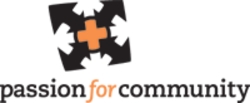Project
Promoting gender equality in Agago District
-
Amount Funded
25,000 EUROProject Duration
01 Mar 2018 - 31 Aug 2019 -
-
Lead organisation
-
The decades-long conflict in northern Uganda caused by the Lord’s Resistance Army (LRA) insurgency disproportionately impacted women, increasing their vulnerability and marginalisation. This compounded the disparity for women as they continued to experience inequities associated with traditional society, but were also obliged to take on new burdens and responsibilities within families and the community especially as family breadwinners and community leaders. During the conflict, sexual and gender-based violence (SGBV) was widespread, with violations against women and men carried out predominantly by combatants. It was on the basis of the above that Passion4Community Development Organisation was founded by a vision groups of both local and international people. They started as a Comunity-Based Organisation in 2008 and later registered as a national organisation in the year 2011. Gender has been an integral aspect of the organisation right from the start. The organisation has grown from less than 5 staff from the time it started to now over 10 staff recently.
Vision: A society where young people are able to build their potential free from exploitation abuse and lead a productive life.
Mission Statement: Changing the lives of young people to make a difference by encouraging them, building their capacity to be innovative, creative and hence self reliance.
-
Organisation
The decades-long conflict in northern Uganda caused by the Lord’s Resistance Army (LRA) insurgency disproportionately impacted women, increasing their vulnerability and marginalisation. This compounded the disparity for women as they continued to experience inequities associated with traditional society, but were also obliged to take on new burdens and responsibilities within families and the community especially as family breadwinners and community leaders. During the conflict, sexual and gender-based violence (SGBV) was widespread, with violations against women and men carried out predominantly by combatants. It was on the basis of the above that Passion4Community Development Organisation was founded by a vision groups of both local and international people. They started as a Comunity-Based Organisation in 2008 and later registered as a national organisation in the year 2011. Gender has been an integral aspect of the organisation right from the start. The organisation has grown from less than 5 staff from the time it started to now over 10 staff recently.
Vision: A society where young people are able to build their potential free from exploitation abuse and lead a productive life.
Mission Statement: Changing the lives of young people to make a difference by encouraging them, building their capacity to be innovative, creative and hence self reliance.
-
Project
The P4C’s Promoting Gender Equality in Agago district in Northern Uganda addresses human rights, governance and equity issues such as mass displacement, including high levels of Sexual and Gender-based Violence, suicide, lack of access to education, health services, land disputes and loss of productive assets that greatly affected women disproportionately due to the prolonged war in Northern Uganda.
The project approach is to target women, youth, men, and representatives of local communities to ensure to have societal buy-in of the strategy of the various interest groups and key stakeholders and to establish strong linkages and partnerships with the Government, financial institutions, private sector, and the civil society as to accelerate project gains, and sustain project impact.
The project aims to bring about significant and sustainable improvements in women’s social status, economic productivity and participation, politico-legal awareness and improved access to property and other rights. The objectives include:
1. Mobilise and build the capacity of at least 800 women for taking up action to realise their rights and entitlements.
2. Undertake economic activities to improve their livelihoods and increasingly participate in decision making in domestic and public spheres.
3. Increase household incomes and reduced dependence on violent providers (economic empowerment).
4. Advocate for quality public services and accessing justice and redressing grievances and will be realising their rights and entitlements (political and legal empowerment).
5. Mobilise and build capacity of individual and organised action to address persistent exclusion and violence, access entitlements/social services and exercise greater ownership over resources within one year (social empowerment).
-
-
The P4C’s Promoting Gender Equality in Agago district in Northern Uganda addresses human rights, governance and equity issues such as mass displacement, including high levels of Sexual and Gender-based Violence, suicide, lack of access to education, health services, land disputes and loss of productive assets that greatly affected women disproportionately due to the prolonged war in Northern Uganda.
The project approach is to target women, youth, men, and representatives of local communities to ensure to have societal buy-in of the strategy of the various interest groups and key stakeholders and to establish strong linkages and partnerships with the Government, financial institutions, private sector, and the civil society as to accelerate project gains, and sustain project impact.
The project aims to bring about significant and sustainable improvements in women’s social status, economic productivity and participation, politico-legal awareness and improved access to property and other rights. The objectives include:
1. Mobilise and build the capacity of at least 800 women for taking up action to realise their rights and entitlements.
2. Undertake economic activities to improve their livelihoods and increasingly participate in decision making in domestic and public spheres.
3. Increase household incomes and reduced dependence on violent providers (economic empowerment).
4. Advocate for quality public services and accessing justice and redressing grievances and will be realising their rights and entitlements (political and legal empowerment).
5. Mobilise and build capacity of individual and organised action to address persistent exclusion and violence, access entitlements/social services and exercise greater ownership over resources within one year (social empowerment).



